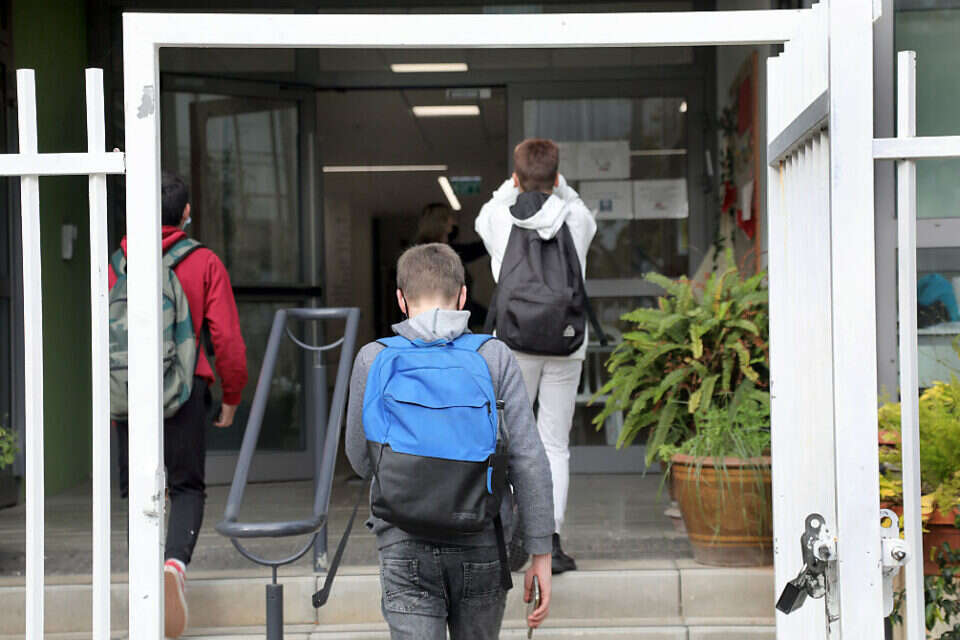Mental meeting, social improvement and manifestations of violence:
the Ministry of Education published today (Thursday) the findings of the school climate survey conducted in the previous academic year (2015). The survey was conducted during the Corona period and shortly after it among the students of the 5th-11th grades.
The data collected about two years after the outbreak of the Corona epidemic indicate in most cases the deterioration of the situation of the Hebrew speaking students at all stages of education - elementary, middle school and high school and the deterioration of the situation of the Arabic speaking elementary students.
Academically, in high schools, about 54% of the students stated that the corona virus had a negative effect on them, as well as 47% of the middle school students.
On the other hand, in elementary (5th and 6th) 33% of the students stated that the corona virus had a negative effect on them, while 39% stated that the corona virus actually had a positive effect - this despite the fact that many classes were at home and studied using zoom, but also studied in small groups.
Zoom studies.
The corona period had a negative effect, photo: Oren Ben Hakon
From an emotional point of view, it seems that the corona mainly affected the high school students (10th-11th grade), where 46% of the high school students claimed that they were negatively affected mentally, next to them 38% of the middle school students were negatively affected and only 28% of the elementary students were negatively affected by it.
On the other hand, 35% of the elementary school students claimed that the corona actually had a positive effect emotionally.
Between prosperity and decline in the social aspect
And what happened on the social side?
Apparently, despite the closures, there are groups that actually flourished in Corona: the data shows that 41% of the elementary school students claimed that the Corona had a positive effect on their social life, this may be due to the capsules.
As for the older age groups, in middle schools, 28% of the students stated that the corona virus had a negative effect on their social situation, while 32% stated that it improved them (the rest unchanged).
As for high school students, 31% of them were socially harmed by Corona, while 28% improved their social status.
Corona tests in the schools, photo: Oren Ben Hakon
Except for Corona, the survey examined data similar to those examined in previous years - that is, how students feel in schools.
As for the educational climate - most of the students (about 70%) reported a sense of belonging to the school, a close and caring relationship between them and the teachers and good social relations with their friends.
The reporting rates are higher among Arabic speakers and mostly in the lower age groups.
Alongside this, students also reported inappropriate behavior in class such as disruptions, rudeness and tardiness (about 50%, more among Hebrew speakers) and exposure to violent incidents.
Did the capsules have a positive effect on the social aspect?, Photo: Oren Ben Hakon
75% claim that they can study independently
According to their reports, the most common manifestations of violence that the students were exposed to (about 25%) are swearing, insults and pushing, and the rarer ones are online violence (about 6%).
Higher rates of boys reported violence on various issues compared to girls.
As for the pedagogical environment: about 70% of the students stated that they have control over a variety of ICT and information skills, such as searching for information on the Internet, avoiding online dangers and mastering learning software, and about 75% reported that they perceive themselves as having independent study skills.
In addition, most of them (about 70%) reported clear learning in a way that helps to understand the material, active and with the participation of the students in the lesson (more fundamentally than in KTA and HTA).
On the other hand, only about half reported that the teachers teach in an interesting way, that they are updated on their academic status, and that the teachers adapt the teaching to the students' abilities.
In all the pedagogical aspects examined, the reporting rates among Arabic speakers exceed those of Hebrew speakers.
were we wrong
We will fix it!
If you found an error in the article, we would appreciate it if you shared it with us

